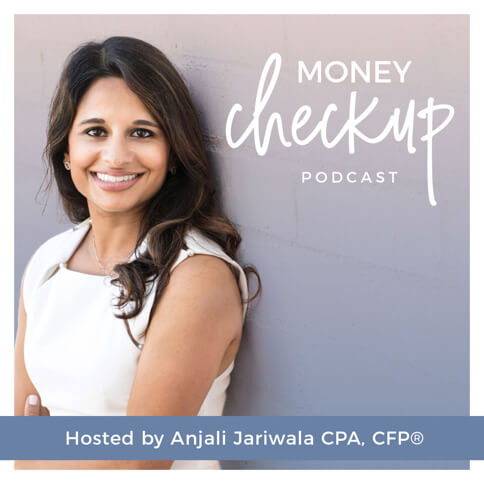Many of my physician clients have experienced drops in salary or income in 2020 due to the COVID-19 pandemic. Others have seen reductions or stops in employer contributions to retirement plans. Now that hospitals are operating semi-normally, some staff have returned to relatively normal schedules, but other specialties may still be seeing a reduction in income.
Temporary reduction in pay and reduction in retirement plan contributions, although temporary, may result in a longer-term impact. On one hand, many families have seen their expenses reduced in 2020, as travel and recreation have been limited. But on the other hand, pay cuts mean less disposable income for saving and investing.
We don’t yet know what the impact of this year will be on physician compensation or benefits. This pandemic isn’t the first crisis to hit the medical profession and it probably won’t be the last, and if you’re feeling concerned about your job security, you certainly aren’t alone.
Fortunately, there are some things you can do now to prepare for a future that no longer feels as certain as it once did.
Examine Your Emergency Fund
If you lose your job or part of your income, your emergency fund is meant to be the first place you turn to. Financial advisors typically recommend keeping three to six months of expenses in your emergency fund, but after COVID-19, it may be better to have an amount that is even more than that, especially if you have uneven income from a business.
If you want to increase the size of your emergency fund, start now. Delay large purchases and focus on refilling your emergency fund instead. If you recently refinanced your mortgage and your payment is lower, consider putting the difference into your emergency fund.
If you wait until the next crisis, that will be too late.
It’s true that interest rates on savings are low right now. But the most important aspect of an emergency fund is liquidity — you need to be able to access it as soon as you need it. If you invest your emergency fund, it will be much more difficult to access. Plus, you risk losing some of your principal due to market volatility.
Lower Your Expenses and Increase Your Savings
Many young physicians have been advised to “live like a resident” for their first few years after training. I don’t necessarily agree with that, but it is important to develop good habits and avoid lifestyle creep. In the long term, the less money you need to live on, the easier it will be to achieve financial independence.
Take time to analyze your cash flow so you know how much money you need for your day-to-day expenses, like housing, transportation and student loan payments. Determine what you want to save for, and whatever money you have left over is what you have to spend on discretionary expenses.
If you’re early in your career, focus on maximizing your savings, especially if you are concerned about your long-term job prospects. Whenever you receive a raise or bonus, allocate that toward increasing your retirement plan contributions or contributing to a taxable investment account. I like this strategy because you won’t notice any change in your day-to-day life, but you will be setting more and more aside for yourself in the future.
Invest Appropriately For Your Goals
If you have a fully funded emergency fund but find yourself wondering what to do with your cash, you may be sitting on too much cash. Make sure you are fully funding your retirement savings. The more you can put away and invest while you are actively earning income, the more quickly you can build up your retirement portfolio and achieve financial independence.
If you are thinking about early retirement or no longer relying on your clinical income, work those numbers now. How much money would you need to retire at your desired age? To get there, how much do you need to save monthly or annually?
When I talk to physician clients about financial independence (or the FIRE movement), we often realize that they want to work less, but not to stop working altogether. This may be a useful exercise for many medical professionals in an uncertain job market: If in five years you are working and earning half as much as you do now, how much do you need to have saved for retirement?
Diversify Your Income Stream
Although having one W-2 job is the norm for most Americans, depending on a single source for all of your income is a risk. Consider mitigating unexpected pay cuts by diversifying your income stream.
There are a variety of ways to earn income from sources other than your job. Some physicians pursue speaking, writing, consulting, or locums. Others move into passive real estate investing or even buy and renovate rental properties.
If you have more than one income stream, you’ll be less dependent on any single one of them and more easily able to manage if one of them diminishes.
Understand Your Hospital or Physician Group’s Financials
Being financially sound as an individual is important, of course. But if the organization you work for isn’t financially sound, that presents a risk to your personal and family finances too.
Many hospitals and physician groups had to make cuts to staff and salaries during the pandemic. Many hospitals rely on the income from elective surgeries to remain profitable, and the stoppage of elective surgeries for several months in the spring hurt many hospitals’ financials. If your employer made cuts, make sure you understand what happened financially. Ask what leadership is doing to make sure the institution is better prepared for the next crisis. (If you own your own practice, prepare for questions like these from your employees.)
If you feel uneasy about their answers, you may want to consider exploring other opportunities. As you begin searching, however, make sure you ask the same question of any new hospital or physician group you might join so that you can plan accordingly.
If you have never really paid much attention to your finances, know that it’s never too late to get started. Build your emergency fund, understand your cash flow, and start saving for retirement, and you’ll be well on your way to financial security.




